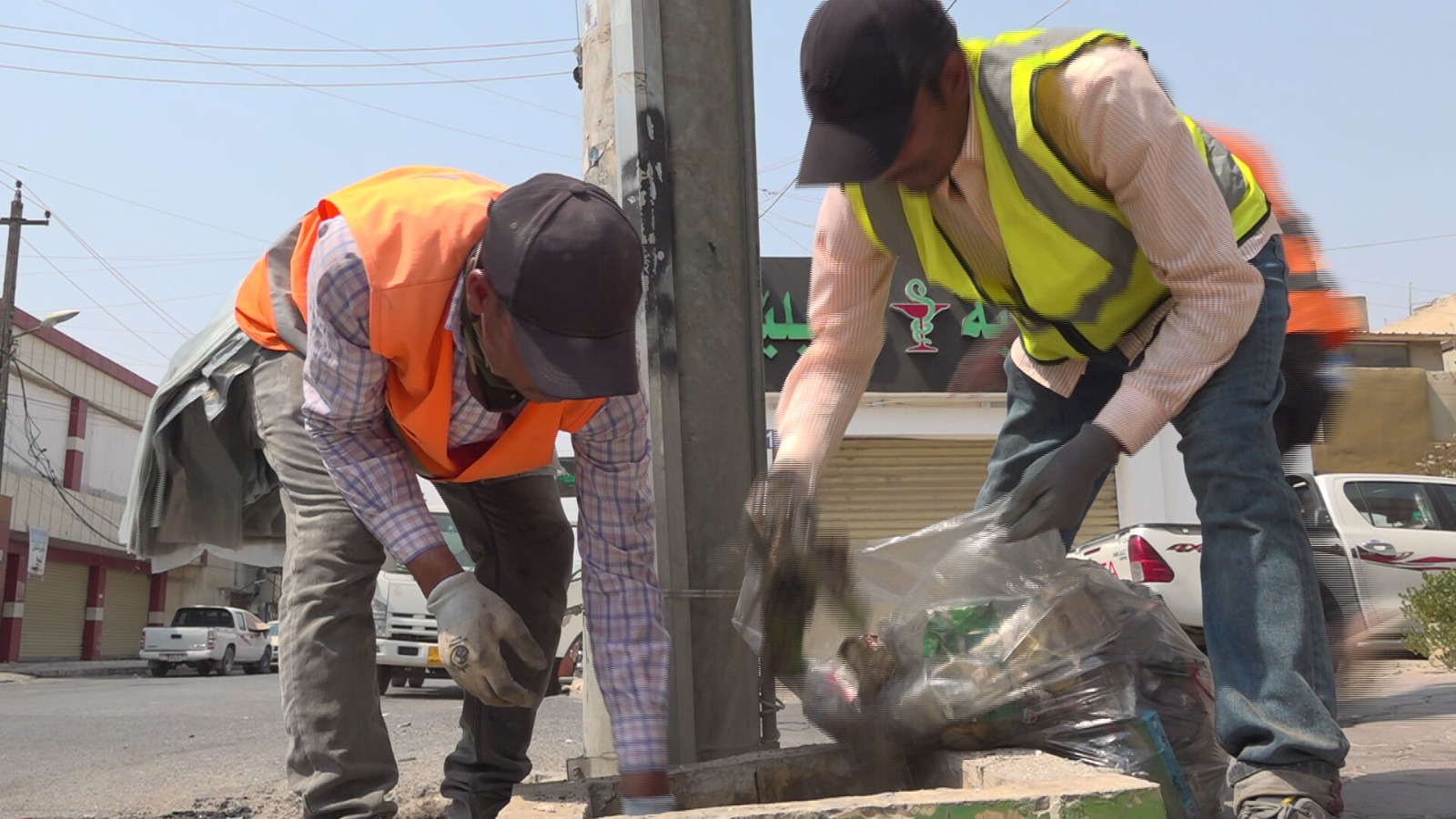Erbil's Sanitation Army Battles Heat, Waste Amid Recycling Push
Erbil's sanitation army works in harsh heat to collect 60,000 tons of waste monthly. Amid calls for public cooperation, the KRG plans a major recycling plant to create a sustainable environment and reduce the environmental impact of landfills.

ERBIL (Kurdistan24) – As soaring summer temperatures grip Erbil, an army of thousands of sanitation workers is engaged in a massive, round-the-clock operation to keep the city clean, collecting over 60,000 tons of garbage monthly while the government unveils ambitious plans for a sustainable, long-term solution through recycling. The monumental daily effort, which costs the government over 10 billion dinars each month, highlights both the dedication of the workers and the urgent need for greater public cooperation and environmental reform.
The scale of the sanitation operation is vast. According to official statistics, approximately 11,000 workers across the Kurdistan Region manage about 7,200 tons of garbage daily, utilizing 2,453 vehicles and cleaning machines.
In Erbil alone, the city is divided into six main zones, with about 250 workers assigned to each zone. Working in three daily shifts, these teams are tasked with the relentless job of cleaning streets, markets, and residential neighborhoods.
This demanding work is made more difficult by the harsh summer conditions. Speaking to Kurdistan 4, sanitation worker Mohammed Rashid described the daily struggle and appealed for public support. "We work in harsh summer conditions and hope that citizens will cooperate with us by protecting the environment and not throwing waste in the streets, so our burden doesn't increase," he said.
While noting that many people are cooperative, he added, "there is a group that is indifferent, and when we advise them, they might start problems with us."
The efforts of these workers do not go unnoticed by the community. Merchant Ismail Aziz praised their continuous dedication, stating, "The sanitation workers are on the streets from morning until evening, and they put in a great effort to clean the markets and neighborhoods. Today, we can say that about 95% of the city is completely clean thanks to their continuous work."
This sentiment was echoed by environmental activist Mohammed Bakhtiar, who lauded the work of the government and specialized companies. "When we wake up in the morning, we don't find any waste in the streets," he said, before reinforcing the call for public participation. "However, citizens must also take responsibility for keeping their city clean."
Looking toward a more sustainable future, the Kurdistan Regional Government is advancing plans to move beyond the current system of waste collection and disposal.
Dr. Sinan Abdullah, the spokesperson for the Environment Board in the Kurdistan Region, revealed to Kurdistan24 that ambitious plans are underway to establish a garbage and waste recycling plant in Erbil. This facility, he explained, will reduce the need for burying or burning waste, which poses significant environmental risks.
"The increase in waste negatively affects the environment, especially with the emission of methane gas from landfill sites amid high temperatures," Dr. Abdullah said. "There is an urgent need for recycling plants, especially for solid waste like iron and plastic, to process a large portion of these quantities."
He affirmed that the Board's ultimate plan is to establish a waste recycling plant in every city, a move that would end the practice of burying waste and transition the Region towards a clean and sustainable environment, as detailed in a report by Kurdistan24's Azar Farouq in Erbil.
Kurdistan24's Azar Farouq in Erbil contributed to this report.
